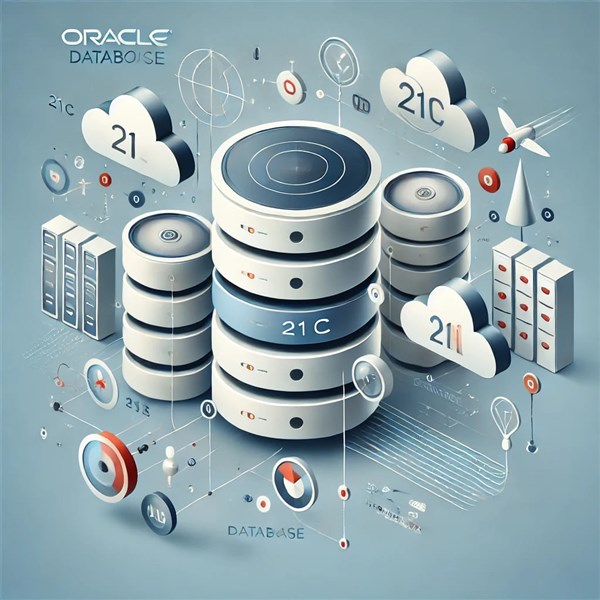Unable to find what you're searching for?
We're here to help you find it
In a data-driven world, the database platform you choose can significantly influence application performance, scalability, and innovation. Oracle has long been a trusted name in the enterprise database world, and with the release of Oracle Database 21c, the tech giant has once again raised the bar.
While Oracle Database 19c is the current long-term support (LTS) release, Oracle 21c is considered an innovation release, packed with over 200 new features that deliver more flexibility, better performance, stronger security, and cutting-edge capabilities for modern applications.
So, should you upgrade?
In this blog, we’ll explore the top reasons to upgrade to Oracle Database 21c, and why businesses, DBAs, and developers should seriously consider adopting this powerful platform.
What’s new:
Oracle 21c introduces Blockchain Tables, a revolutionary feature that brings blockchain-like data immutability directly into the relational database.
Key Benefits:
Why it matters:
Now you can achieve blockchain-level security without integrating third-party blockchain systems — all while using SQL and Oracle’s native tools.
What’s new:
Oracle 21c enhances its machine learning capabilities with AutoML, which automates the process of algorithm selection, feature engineering, and model tuning.
Key Benefits:
Why it matters:
With AutoML, data scientists and analysts can train and deploy ML models directly inside the database, eliminating data movement and improving performance and security.
What’s new:
Oracle 21c introduces a true native JSON data type, allowing for more efficient and structured storage and retrieval of JSON documents.
Key Benefits:
Why it matters:
Developers building modern applications with REST APIs and NoSQL-like functionality now get faster performance and deeper SQL integration with JSON in Oracle.
What’s new:
While multitenancy was introduced earlier, Oracle 21c enhances the multitenant architecture, allowing up to 4096 pluggable databases (PDBs) per container database (CDB).
Key Benefits:
Why it matters:
Multitenancy is the future of Oracle database architecture. Oracle 21c makes it more powerful and scalable than ever, ideal for SaaS providers and large enterprises.
What’s new:
Oracle Database 21c introduces sharding improvements for distributed, high-performance applications.
Key Benefits:
Why it matters:
For organizations building globally distributed applications, sharding in Oracle 21c provides low-latency and high-availability capabilities—right out of the box.
What’s new:
Oracle 21c introduces several optimizer and indexing improvements, including automatic zone maps, high-frequency statistics gathering, and optimized materialized views.
Key Benefits:
Why it matters:
Whether you’re running complex analytics or high-throughput OLTP, Oracle 21c brings built-in intelligence and automation to performance tuning.
What’s new:
Oracle 21c is available first on Oracle Cloud, making it ideal for cloud-native or hybrid deployments.
Key Benefits:
Why it matters:
As more organizations move to the cloud, Oracle 21c’s cloud-first model ensures you can take advantage of cutting-edge features without the traditional infrastructure overhead.
What’s new:
Oracle continues to push boundaries with enhanced data protection, auditing, and access control.
Key Benefits:
Why it matters:
With rising threats and strict data regulations (GDPR, HIPAA, etc.), Oracle 21c helps businesses meet compliance and security requirements without third-party tools.
What’s new:
Oracle 21c improves support for CI/CD pipelines, containerization, and developer productivity.
Key Benefits:
Why it matters:
Modern developers need flexible, scriptable, and testable environments. Oracle 21c enables faster releases and seamless DevOps integration.
Why it matters:
Oracle 21c is a preview of what’s to come in the next long-term support release. Upgrading now gives developers and DBAs a head start in adopting:
Staying on older versions like 12c or even 18c increases technical debt and limits access to modern tools.
|
Feature Area |
What You Gain |
|---|---|
|
Security |
Blockchain tables, improved encryption, better auditing |
|
Performance |
Automatic zone maps, in-memory enhancements, query optimization |
|
Scalability |
Up to 4096 PDBs, sharding enhancements, multitenant upgrades |
|
Modern Development |
Native JSON, AutoML, cloud integration, DevOps support |
|
Future Readiness |
Access to emerging tech like AI, cloud-native tools, and automation |
🧭 Final Thoughts
Oracle Database 21c is not just an upgrade—it's a significant leap forward in how organizations build, deploy, and manage data-driven applications. With features ranging from Blockchain Tables and AutoML to enhanced multitenancy and JSON support, 21c empowers businesses to be faster, safer, and more innovative.
Even though 21c is an innovation release (not a long-term support version), it gives teams a chance to test, explore, and prepare for the future of Oracle databases—especially in hybrid and cloud-first environments.
✅ Final Takeaway:
If your organization values security, speed, and scalability, upgrading to Oracle Database 21c is a smart move. It positions you ahead of the curve, opens the door to modern development paradigms, and ensures your data infrastructure is ready for what’s next.
Koenig Solutions, a leading IT training company, offers comprehensive certification training courses for Oracle Database 21c. These courses are designed to equip you with the skills and knowledge required to effectively use this innovative database technology.
Koenig Solutions has been providing top-notch IT training and certifications for over two decades. With their industry-experienced trainers and flexible learning modes, they are committed to helping you succeed in your professional journey.

Aarav Goel has top education industry knowledge with 4 years of experience. Being a passionate blogger also does blogging on the technology niche.










